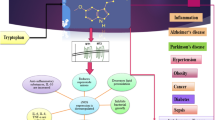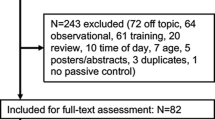Abstract
Background: The mechanisms regulating adiponectin, a highly abundant adipokine produced by adipocytes, have not been fully elucidated. Adiponectin levels are significantly higher in women when compared to men, suggesting sex-hormone involvement in its regulation. Previously, we have observed an inverse association between adiponectin and basal body temperature in pregnant women. These findings suggest that states where progesterone and temperature fluctuate, such as the menstrual cycle, could be associated with fluctuating adiponectin levels. Aim: The aim of this study was to examine the relationship between adiponectin, progesterone, and temperature across the menstrual cycle. Subjects and methods: A prospective study was performed. Fifteen non-obese pre-menopausal female subjects, all with regular cycles, and on no medication recorded a daily temperature and underwent blood sampling, indirect calorimetry, and bio-impendence studies in both the follicular and luteal phases of the menstrual cycle. Results: Serum adiponectin levels did not vary significantly across the menstrual cycle or between those who did and did not ovulate. No correlation was found between adiponectin levels and sex steroids, insulin and glucose levels or basal energy expenditure and body composition. Conclusions: Our results indicate that adiponectin is not related to sex steroids or body composition in healthy premenstrual women.
Similar content being viewed by others
References
Budak E, Fernández Sánchez M, Bellver J, Cervero A, Simón C, Pellicer A. Interactions of the hormones leptin, ghrelin, adiponectin, resistin and PYY3-36 with the reproductive system. Fertil Steril 2006, 85: 1563–81.
Matsuzawa Y. Adiponectin: Identification, physiology and clinical relevance in Metabolic and Vascular disease. Atheroscler Suppl 2005, 6: 7–14.
Cust A, Kaaks R, Fridenreich C, et al. Plasma adiponectin levels and endometrial cancer risk in pre- and postmenopausal women. J Clin Endocrinol Metab 2007, 92: 255–63.
Trujilo M, Scherer P. Adiponectin—journey from a adipocyte secretory protein to biomarker of the metabolic syndrome. J Intern Med 2005, 357: 167–75.
Pischon T, Hotamisligil G, Rimm E. Adiponectin: stability in plasma over 36 hours and within-person variation over 1 year. Clin Chem 2004, 49: 650–2.
Kleiblová P, Springer D, Haluzík M. The influence of Hormonal Changes During the Menstrual cycle of Serum Adiponectin Concentrations in Healthy Women. Physiol Res 2006, 55: 661–6.
Sieminska L, Kos-Kudla B, Neidziolka D, Kajaniouk S, Novak M, Glogowska-Szelag J. Serum adiponectin in women with polycystic ovarian syndrome and its relation to clinical, metabolic and endocrine parameters. J Endocrinol Invest 2004, 27: 528–34.
Gui Y, Silha J, Murphy L. Sexual dimorphism and regulation of resistin, adiponectin and leptin expression in the mouse. Obes Res 2004, 12: 1481–91
Gavrila A, Chinha J, Yiannakouris N, et al. Serum adiponectin levels are inversely associated with overall and central fat distribution, but are not directly regulated by acute fasting or leptin administration in Humans: cross-sectional and interventional studies. J Clin Endocrinol Metab 2003, 88: 4823–31
Koh SJ, Hyun YJ, Choi SY, et al. Influence of age and visceral fat area on plasma adiponectin concentrations in women with normal glucose tolerance. Clin Chim Acta 2008, 389: 45–50.
Sieminska L, Wojciechowska CV, Niedziolka D, et al. Effects of postmenopause and hormone replacement therapy on serum adiponectin levels. Metabolism 2005, 54: 1610–4.
Orio F, Palomba S, Cascella T, et al. Adiponectin levels in women with polycystic ovary syndrome. J Clin Endocrinol Metab 2003, 88: 2619–23.
O’Sullivan AJ, Kriketos A, Martin A, Brown MA. Serum adiponectin levels in normal and hypertensive pregnancy. Hypertens Pregnancy 2005, 25: 193–203.
Isobe T, Saitoh S, Takagi S, et al. Influence of gender, age and renal function on plasma Adiponectin levels: the Tanno and Sobetsu study. Eur J Endocrinol 2005, 153: 91–8.
Catalano P, Hoegh M, Minium J, et al. Adiponectin in human pregnancy: implications for regulation of glucose and lipid metabolism. Diabetolgia 2006, 49: 1677–85.
O’Sullivan AJ, Martin A, Brown M. Efficient fat storage in premenopausal women and early pregnancy: a role for estrogen. J Clin Endocrinol Metab 2001, 86: 4951–6.
Naruse K, Yamasaki M, Umekage H, Sado T, Sakamoto Y, Morikawa H. Peripheral blood concentration of adiponectin, an adipocytespecific plasma protein, in normal pregnancy and pre-eclampsia. J Reprod Immunol 2005, 65: 65–75.
Retnakaran R, Hanley A, Raif N, Connelly P, Sermer M, Zinman B. Hypoadiponectinaemia in South Asian Women during pregnancy: evidence of ethnic variation in adiponectin concentration. Diabet Med 2004, 21: 388–92.
Esposito K, Giugliano G, Scuderi N, Giugliano D. Role of adipokines in the obesity-inflammation Relationship: the effect of fat removal. Plast Reconstr Surg 2006, 118: 1048–57.
Lafontan M, Viguerie N. Role of adipokines in the control of energy metabolism: focus on adiponectin. Curr Opin Pharmacol 2006, 6: 580–5.
Yamauchi T, Kamon J, Minokoshi Y, et al. Adiponectin stimulates glucose utilization and fatty acid oxidation by activating AMP-activated protein kinase. Nat Med 2002, 8: 1288–95.
Berek J. Infertility. In Novak’s Gynaecology (13th ed.). Philadelphia: Lippincott, Williams and Wilkins, 2002.
Kotier DP, Burastero S, Wang J, Pierson RN Jr. Prediction of body cell mass, fat-free mass and total body water with bioelectrical impedance analysis effects of race, sex and disease. Am J Clin Nutr 1996, 64: 489S-97S.
Oh DK, Ciaraldi T, Henry RR. Adiponectin in health and disease. Diabetes Obes Metab 2007, 9: 282–9.
Author information
Authors and Affiliations
Corresponding author
Rights and permissions
About this article
Cite this article
Hall, N., White, C. & O’Sullivan, A.J. The relationship between adiponectin, progesterone, and temperature across the menstrual cycle. J Endocrinol Invest 32, 279–283 (2009). https://doi.org/10.1007/BF03346467
Accepted:
Published:
Issue Date:
DOI: https://doi.org/10.1007/BF03346467




